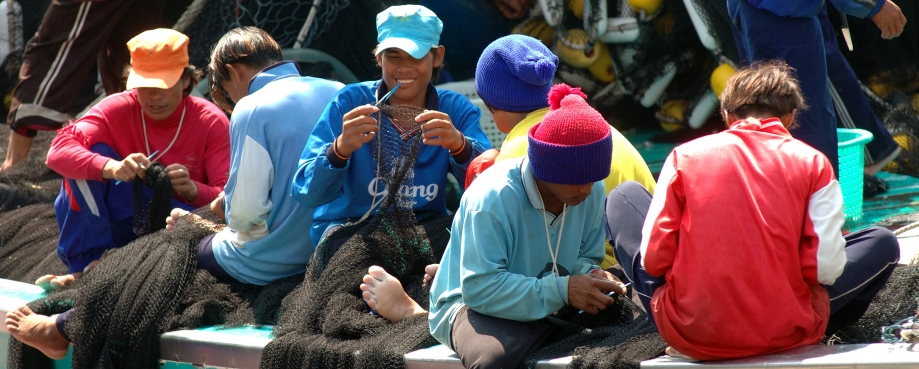
Nick Kightley, ETI's Strategic Lead, Food, Farming and Fisheries, highlights the key takeaways for exporters and buyers from a new report into the impact of Covid-19 on the Thai seafood sector
A briefing note published today by the CSO Coalition and Oxfam finds that the Thai Government's immediate response to Covid-19 had a significant impact on workers and small-scale producers in the Thai seafood sector.
The note identifies these impacts, offers reflections on the remaining challenges and further measures to support small-scale producers and workers during the ongoing pandemic.
It also addresses the inadequate protection and support offered to workers and small producers with a set of policy recommendations for a range of stakeholders involved in the seafood and fishery sector, including the national seafood exporters, vessel owners and global buyers.
Buyers and suppliers need to agree a formula to share the costs of Covid-19 responsible action. If this does not happen, vulnerable workers will likely be further squeezed and disadvantaged
The 3 co-operating companies (CP Foods, Seafresh and Thai Union) represent leading suppliers to UK markets - and in my view - demonstrate the state of industry good practice in Thailand at present. It should not be assumed that other companies operate to these standards without further checks, but this provides a benchmark to judge others.
There are a number of key recommendations which exporters and buyers need to act on as the Pandemic continues:
- Greater dialogue is still needed with workers and their representatives to document and respond to their concerns and needs. Look at the practical challenges throughout the day of such workers
- Institutionalise worker representation by encouraging workers to organise (forming trade unions where this is allowed). Where workers find barriers to organising, companies should consult with local trade unions as to how workers can be best represented (In Thailand, this might best be started by local companies contacting SERC and ETI can provide details if required.)
- Stronger guidance to workers on risks and health education as this understanding is still mixed
- Uniform and sustained Human Resource team support for workers to help access state benefits. There are multiple barriers to migrant workers specifically and without HR support, State benefits are virtually unattainable
- Develop and implement an advocacy campaign targeting the Thai Government for policies that treat all workers (and their dependents in Thailand) equally. (The Thai State continues to implement policies and laws that actively discriminate against migrant workers, making them more vulnerable to daily living and working risks and far more vulnerable to exploitation.
- Apply pressure on their own seafood industry associations to have them provide greater leadership at industry level. This is critical if smaller and less known companies are to operate at the same standards as these leading brands.
- Buyers and suppliers need to agree a formula to share the costs of Covid-19 responsible action. If this does not happen, vulnerable workers will likely be further squeezed and disadvantaged.
- Buyers should acknowledge good practice when seen. This encourages further good practice and this can also challenge those not implementing good practices.
